New York is just a huge city, and, of course, it is impossible to walk around it all on foot. But we suggest you take a walk through the heart of the Big Apple, Manhattan. After all, there are plenty of places worth seeing here.
First of all, head to the Metropolitan Museum of Art (5th Avenue and 82nd Street). Here you will spend at least an hour and a half admiring numerous objects of history and art from all over the world.
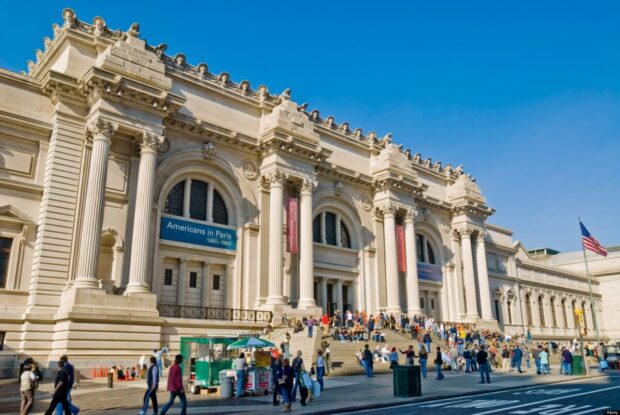
Then head south through the famous Central Park. Here you can relax on a bench or just lie on the lawn, eat a hot dog and admire the local beauty.
Then walk to the end of the east side of Central Park and head south on Fifth Avenue. On the way, you will see an unusual building in the form of a glass cube-the Apple Store.
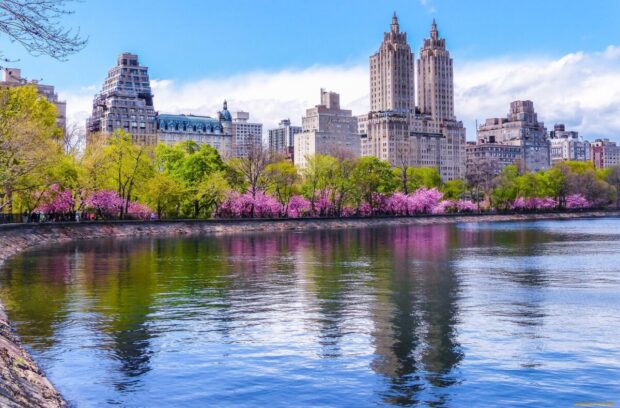
Keep going until you see Rockefeller Center on your right. In winter, there is a skating rink and a Christmas tree, and at any time of the year, a fantastic view of the city opens from the observation deck of the center. The photos taken here will be the best memory of a trip to New York.
After leaving the center, turn west and go to the intersection with Broadway. One of the oldest streets in New York will take you directly to Times Square. This square, which attracts 50 million visitors every year, is one of the main symbols not only of the Big Apple but also of the whole country.
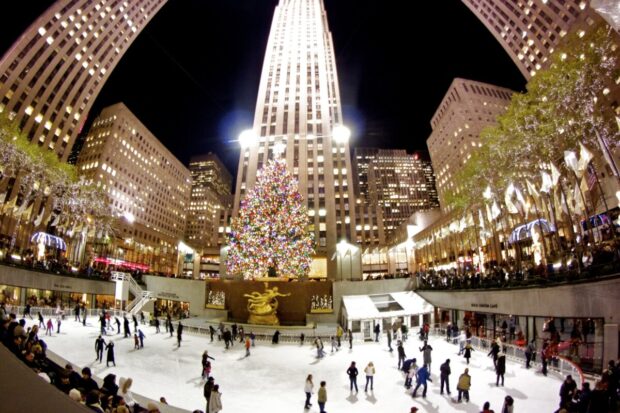
Little Italy is a tourist street with a large number of Italian restaurants, which was once the center of a large Italian commune. Mafia, cannoli, and holiday festivals. The first Italian immigrants began to settle in the Five Points area in the 1850s, particularly along Mulberry Street. Soon there was a whole community. Little Italy was not so small at the end of the XIX – beginning of the XX century. The area began to shrink in size by the 1960s along with the decline of Italian immigration. The Little Italy that exists today is only the northern part of Mulberry Street, which is only an echo of its former glory. Nevertheless, the area retains a colorful and authentic flavor, dotted with restaurants with checkered tablecloths and Italian flags.
You will find yourself in a square surrounded by majestic buildings in the Romanesque and Neoclassical styles. The first building with columns is the New York Supreme Court, next door is the Court of Appeals, followed by a skyscraper that resembles a Stalinist high-rise, with a golden statue instead of a spire.
This is the Municipal Building – the government building of the city of New York. Behind you is the Department of Health and the Registry Office, the glass building on the right is the Immigration Office, the FBI, and a couple of military departments. Go in the direction of the “Stalinist high-rise”. Across the street from it will be visible two low classical buildings-the Department of Education and the mayor’s office. The bureaucracy in New York is top-notch, and that, of course, requires an entire district.
Now turn east and reach the Empire State Building. This famous skyscraper, which is not to be confused with any other, was once the tallest building in New York. You can climb to the top and enjoy the views.
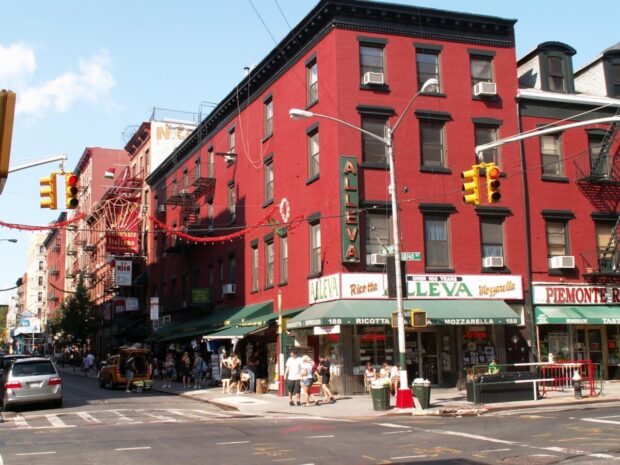
New York’s Chinatown is the largest in America, with the highest concentration of Chinese people in the Western Hemisphere. Today, about 150,000 people live on five square kilometers of Chinatown. The locals speak Mandarin, a dialect of Chinese. The first Chinese to settle in New York were sailors and merchants. In 1878, the first Chinese food store, Wo KEE, opened on Mott Street, and a small Chinese community settled in what was then part of the infamous Five Points slum.
The Chinese regulated and financed their communities through secret organizations-the Tongs. The Tongas were created to protect the Chinese from the dangerous gangs of the Five Points area, but some of them have turned into criminal groups themselves, extorting money for protection and engaging in bloody showdowns with each other. The glass building on the right is the office of Immigration, the FBI, and a couple of military departments. Go in the direction of the “Stalinist high-rise”.
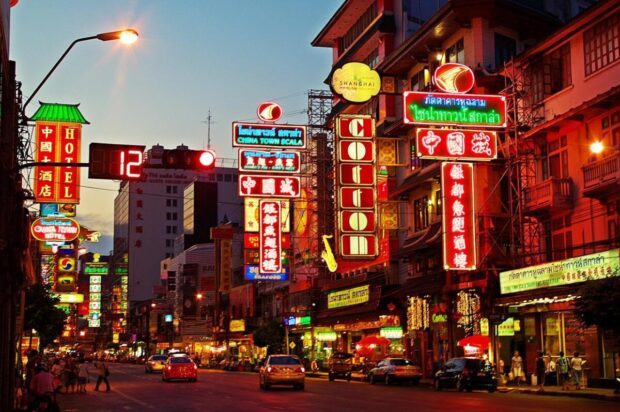
After descending, return to Broadway and head south again. This will take you to Union Square. New York University is nearby, so it’s always full of students. From here, go to Wall Street. There are two ways to do this: either walk down Broadway (it takes about an hour), or take the subway (the subway entrances are at three corners of Union Square) and drive a few stops along Line 4.
In the financial heart of the city, be sure to take a picture at the bull statue. The powerful animal, as if frozen before the attack, symbolizes the assertive stock market players.
Go down to the Battery Park and walk along the shore to the pier with large numbers ” 1 ” and “7”. From here, you can take a boat to the Statue of Liberty. The view of the main symbol of the United States in the rays of the setting sun will be a worthy end to an exciting day.
Like us on Facebook for more stories like this: